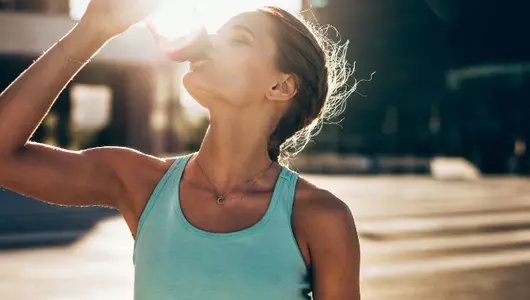
Nutritional strategies to combat anxiety
Most of us know that healthy eating is important for physical health, but what if eating better also helped our mental health? Recent studies show that diet may play a role in lowering one's anxiety level.
Eating a diet that is well balanced and focused on whole foods versus processed foods is key. Whole grains, vegetables and fruits are higher in complex carbohydrates and fiber that help to slow digestion, thereby avoiding significant shifts in blood sugar levels that can contribute to feeling more anxious.
Other strategies include not skipping meals, staying hydrated by drinking adequate amounts of water, and limiting or avoiding caffeine and alcohol. In addition, some studies have shown that specific foods may help to reduce anxiety.
Foods that help reduce anxiety
- Foods rich in magnesium such as leafy greens, legumes, nuts, seeds and whole grains may help a person feel calmer.
- Dietary zinc found in cashews, beef and egg yolks, may be linked to lower anxiety.
- A diet rich in omega 3 fatty acids may help reduce anxiety. Fatty fish such as salmon, nuts and seeds such as walnuts and ground flaxseed, and canola oil and olive oil are good sources.
- B vitamins found in avocado, almonds and fortified whole grains are thought to help the release of serotonin and dopamine for a "feel good" effect.
- Foods high in antioxidants may help ease the symptoms of anxiety disorders as well. This includes dried beans such as pinto, black and red kidney beans, fruits such as apples, sweet cherries and plums, nuts such as walnuts and pecans, and vegetables such as artichokes, kale, spinach, beets and broccoli.
- Spices such as turmeric (containing curcumin) and ginger may also be of benefit.
While more research is needed to study the relationship between food, mood and anxiety, it may be worth giving healthy eating a try in addition to any medications or therapies your doctor has prescribed.
Related articles

When to seek chiropractic care—5 symptoms you shouldn't ignore

Pinched nerves, sciatica and carpal tunnel

Essential tips for preventing sports injuries

Water or electrolyte drinks: What's better for athletes?